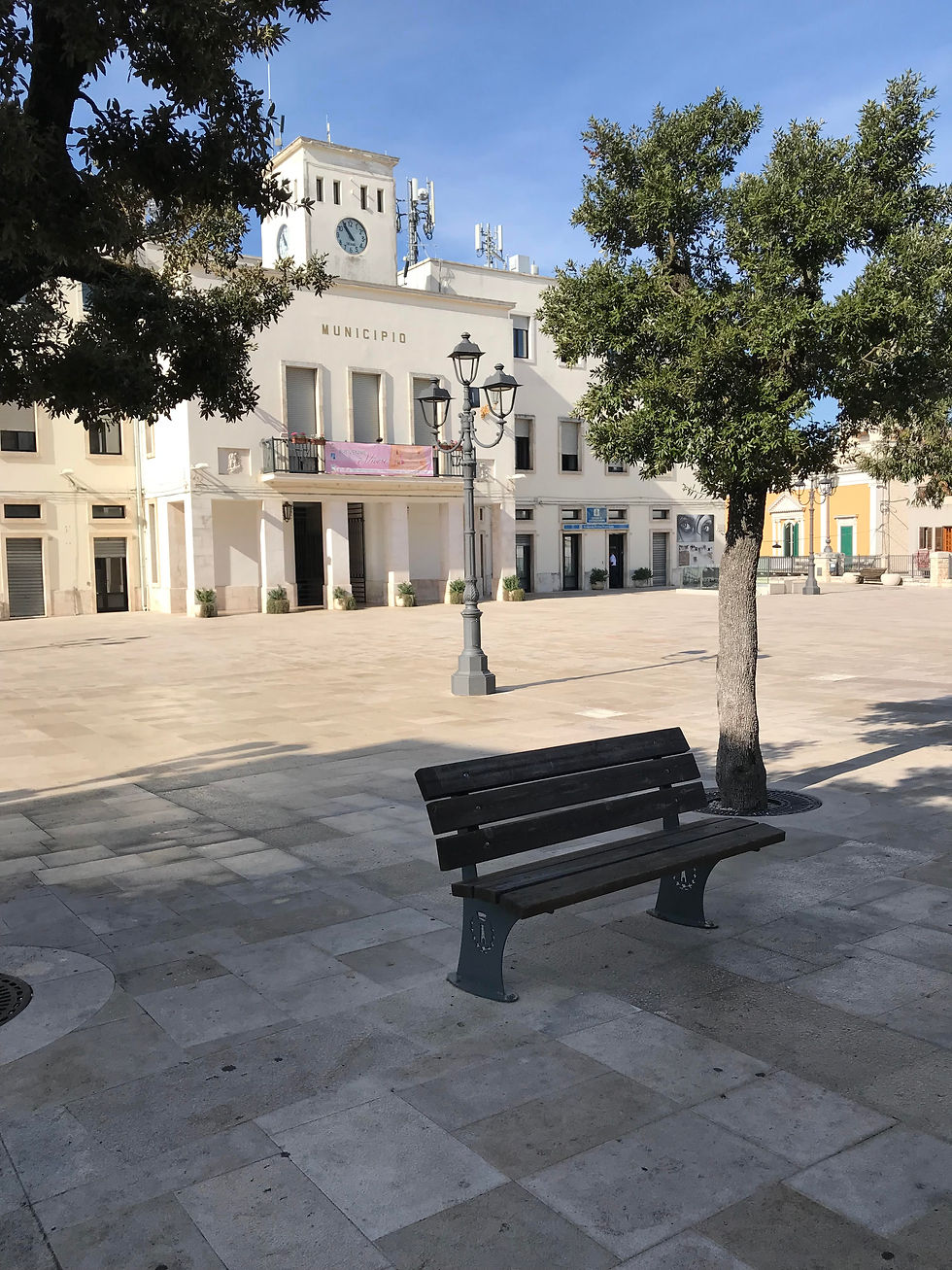Italian Real Estate Buying: Answers to your Questions
- georgettenelson
- Jul 25, 2023
- 4 min read
Since announcing our May 2024 home buying tour (formerly knows as the October 2023 home buying tour), we've been getting a lot of great questions regarding the technicalities of a U.S. citizen buying a home in Italy. We are so lucky to have two experts, Italian real estate attorneys Claudia Bortolani (who is also licensed in California!) and Eleonora Cerin in our lives. Claudia and Eleonora will both be a part of our home buying tour so we thought we'd give over some blog space to answer some of your queries.
Our first question (an excellent one) asks, "How much should I budget for my home's closing costs?" Here's what Claudia and Eleonora have to say:
"The closing costs associated with acquiring a property in Italy may vary depending on several factors, including the property's value, location, and specific circumstances of the transaction. Here are some common closing costs to consider:
1. Notary Fees: Notary fees in Italy are regulated by law and are generally calculated as a percentage of the property's purchase price. They typically range from 1% to 3% of the property value. It's important to note that notary fees vary depending on the complexity of the transaction and the specific notary involved. Fees and charges include: fee (freely to be determined by the notary in accordance to the market, fixed fees have been suppressed), registration in the land register, mortgage, cadastral, and chamber searches, certificates, registration fees, and fees for copies of the deed, as well as other expenses. The notary shall also include in their bills property taxes which have to be transfer to the notary's account before closing. For example, for a property in the Province of Rieti, 50 min drive from Rome, purchase price 120,000.00 Euro, these may be the applicable fees and charges: - Registry tax (9%): Euro 2,530.00 - Purchase taxes: 100,00 - Archive tax: Euro 30,40; Total expenses: Euro 2,660.40 - Contributions: Euro 177.87 - Certifications and checks: Euro 150.00 + VAT - Notary's fees: Euro 1,600,00 + VAT; - Escrow account: Euro 400.00 + VAT Total: Euro 5,461.27

2. Real Estate Agent Fees: If you are using a real estate agent, they charge a commission fee calculated as a percentage on the property price. The typical commission rate in Italy ranges from 2% to 4% of the purchase price, depending mainly on the agency and the business uses in the area, and of course the value of the property. Sometimes for lower value properties, agencies tend to apply a fix amount (eg. Euro 2,500 as a minimum fee). Ensure to clarify the commission structure and percentage with your real estate agent in writing before you sign an offer.
3. Taxes and Duties: Various taxes and duties are applicable during the property acquisition process. These can include Value Added Tax (VAT) or Registration Tax (Imposta di Registro), which depends on the property's nature (newly built or resale) and other factors. The two taxes are mutually exclusive. In very general terms, VAT is generally applicable for newly constructed properties, while Registration Tax is typically levied on resale properties. The tax rates can vary, but as a general guideline, VAT can be around 4% to 10% of the purchase price, while Registration Tax can range from 2% to 9%.
4. Legal and Translation Fees: While not mandatory by law, it is highly recommended, especially for nondomestic, non Italian-speaking buyers, to seek the assistance of an attorney-at-law when involved in a real estate transaction in Italy. Unlike the notary public, an attorney can provide legal counsel, coordinate the process, protect your best interests, and ensure all agreements are properly in place. They can help with due diligence, negotiate proposals, explain obligations, and guide you through the entire process, potentially saving time and money. Legal fees can vary depending on the complexity of the case, but as a rough estimate, they can range from 4-5% of the property's purchase price. Additionally, if you require translation services for documents, consider budgeting for translation fees as well.

5. Mortgage Fees (if applicable): Although mortgages are very difficult to obtain for non-residents, non-Italian buyers, if you are obtaining a mortgage to finance the property purchase, you should consider additional costs associated with loan application fees, property appraisal fees, and mortgage registration fees. These fees can vary depending on the lender and mortgage terms."

Thank you so much for that incredible and thorough answer, Claudia and Eleonora!! That's a lot of information, showing that it's important to be as protected as possible when buying in Italy. Expert help is key to navigating the process.
If you have any questions for Claudia and Eleonora, and you'd like to be a a part of our 2024 home buying tour, please email us!
Also we have a few spots left on our 2023 October 18 to 24 Sicily tour. If you'd like to be on that, let us know right away so that we don't give up your spot.





Comments